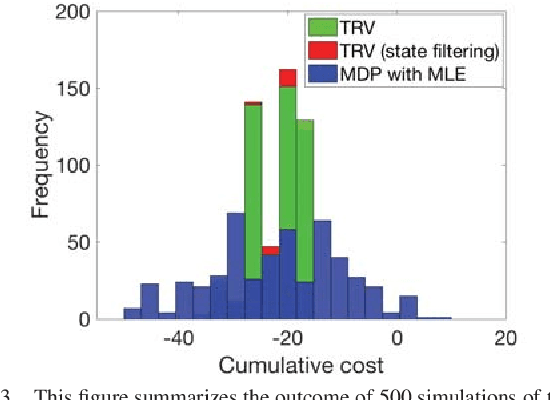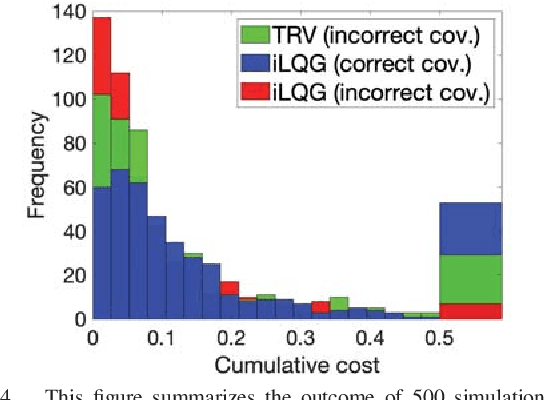Task-Driven Estimation and Control via Information Bottlenecks
Paper and Code
Sep 27, 2018



Our goal is to develop a principled and general algorithmic framework for task-driven estimation and control for robotic systems. State-of-the-art approaches for controlling robotic systems typically rely heavily on accurately estimating the full state of the robot (e.g., a running robot might estimate joint angles and velocities, torso state, and position relative to a goal). However, full state representations are often excessively rich for the specific task at hand and can lead to significant computational inefficiency and brittleness to errors in state estimation. In contrast, we present an approach that eschews such rich representations and seeks to create task-driven representations. The key technical insight is to leverage the theory of information bottlenecks}to formalize the notion of a "task-driven representation" in terms of information theoretic quantities that measure the minimality of a representation. We propose novel iterative algorithms for automatically synthesizing (offline) a task-driven representation (given in terms of a set of task-relevant variables (TRVs)) and a performant control policy that is a function of the TRVs. We present online algorithms for estimating the TRVs in order to apply the control policy. We demonstrate that our approach results in significant robustness to unmodeled measurement uncertainty both theoretically and via thorough simulation experiments including a spring-loaded inverted pendulum running to a goal location.
 Add to Chrome
Add to Chrome Add to Firefox
Add to Firefox Add to Edge
Add to Edge